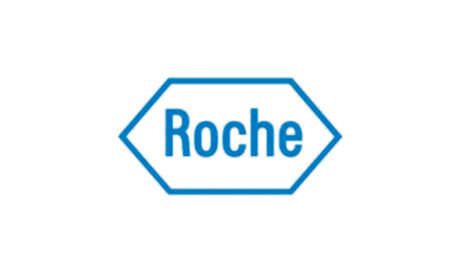fiercepharmaApril 18, 2019
Last July, Roche put a halt on drug price increases in the U.S. But that didn't stop five of its products from topping analysts' sales estimates by double digits to start the year.

New drugs Ocrevus, Hemlibra, Tecentriq, Kadcyla and Perjeta all topped consensus by more than 10% in Q1, Jefferies analysts said Wednesday. And they weren't alone in surpassing forecasts: Even the Big Three cancer megablockbusters that are on the verge of U.S. biosimilar attack—Avastin, Herceptin and Rituxan—delivered Street-beating results.
And now, the company says it expects mid-single digits sales growth for 2019, up from the low-to-mid-single digit growth it previously predicted.
The biggest beat of the quarter came from hemophilia A injection Hemlibra, which expanded into factor VIII noninhibitor patients in the U.S. in October and in Europe in March. The drug, which boasts a first-of-its-kind flexible dosing regimen, doubled its Q1 sales versus the year-ago quarter, and the CHF 219 million ($217 million) it put up surpassed analyst expectations by a whopping 62%.
As Roche "highly penetrated" the inhibitor population before the noninhibitor approval, the company attributed the strong uptake to the U.S. noninhibitor group, where it has now taken about 10% of market share, Roche pharma chief Bill Anderson said on a Q1 briefing with analysts.
The Swiss drugmaker is looking to consolidate its lead in hemophilia A with the $4.8 billion buyout of Spark Therapeutics and the latter’s hemophilia gene therapies. However, the deal recently hit a snag as Roche was forced to extend its tender offer to Spark shareholders to May 2 due to a lack of support, despite unanimous approvals from both companies’ boards. On the Q1 call, CEO Severin Schwan reiterated that Roche is confident it can close the deal by June under the conditions it has offered.
Meanwhile, multiple sclerosis therapy Ocrevus, which Roche has touted as the best launch in the company’s history, continued its strong momentum by registering first-quarter sales of CHF 836 million ($829 million), beating consensus by CHF 111 million, or 15%.
Ocrevus has the broadest-possible label in the U.S., having shown strong data in relapsing-remitting, active secondary progressive and primary progressive forms of MS that together cover about 90% of all patients, Anderson said on the Q1 call. Within those Ocrevus-targeted indications, 37% of new patients and switchers in the U.S. are with the Roche drug, which "portends well for continued growth," he said.
Meanwhile, after a slow launch, PD-L1 inhibitor Tecentriq finally looks on track to cross the blockbuster threshold this year, with Q1 sales that more than doubled year-over-year to reach CHF 336 million ($333 million). And two recent first-in-class approvals in triple-negative breast cancer and extensive-stage small cell lung cancer make that scenario even more likely.
Sales from Roche’s trio of top-selling cancer drugs Rituxan, Herceptin and Avastin all outstripped analysts’ estimates as well. In the U.S., all three drugs turned up growth, but in the EU, where biosimilars have hit hard, Rituxan’s and Herceptin’s sales plummeted 38% and 44% year-over-year, respectively, Wolfe Research analyst Tim Anderson noted in a Wednesday memo to clients.
Roche has been bracing itself for U.S. biosimilars for a long time. On the Q1 call, pharma chief Anderson maintained his prediction that Herceptin and Rituxan would see copycats in the second half of this year, and Avastin in the fourth quarter the earliest.
It’s not just the U.S. market that will be under pressure when biosimilars arrive. China recently green-lighted Fosun Pharma joint venture subsidiary Shanghai Henlius Biotech’s Rituxan biosimilar—the country’s very first biosimilar—and local Herceptin and Avastin knockoffs are in late-stage testing as well.
Roche has constantly pointed to China alongside the U.S. as the growth driver behind the three superstars. Anderson, on the Q1 call, said the company has "substantially discounted" those drugs to gain broader coverage in China, leaving "relatively little" room for biosimilar activity against those products in the next few years.
All told, Roche’s pharma business delivered sales of CHF 11.93 billion ($11.82 billion), beating consensus by 7% and representing a 10% jump at constant exchange rates. But Roche largely has pharma to thank for the beat; its diagnostics franchise grew by only 1%, and its sales came in 5% below forecasts.
Looking ahead, the Swiss drugmaker is expecting an FDA decision by August on entrectinib in NTRK fusion-positive solid tumors or ROS1-positive non-small cell lung cancer. It also recently won an FDA "real-time review" that aims to bring its breast cancer drug Kadcyla to early-stage patients as an adjuvant treatment.
Register as Visitor to CPhI China 2019!

-----------------------------------------------------------------------
Editor's Note:
To apply for becoming a contributor of En-CPhI.cn,
welcome to send your CV and sample works to us,
Email: Julia.Zhang@ubmsinoexpo.com.


Contact Us
Tel: (+86) 400 610 1188
WhatsApp/Telegram/Wechat: +86 13621645194
Follow Us:




 Pharma Sources Insight January 2025
Pharma Sources Insight January 2025


